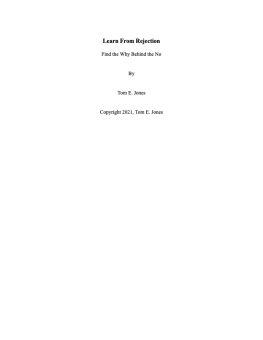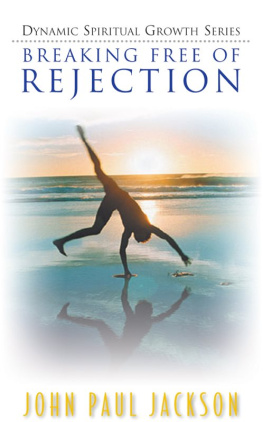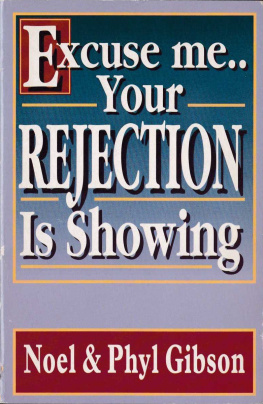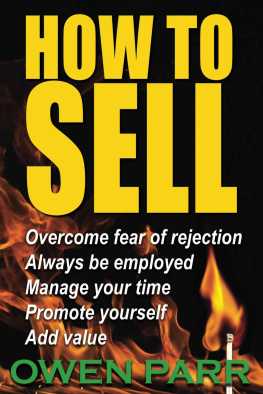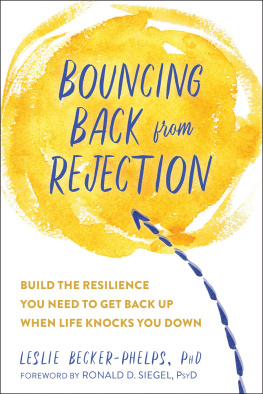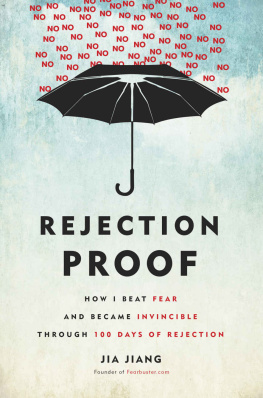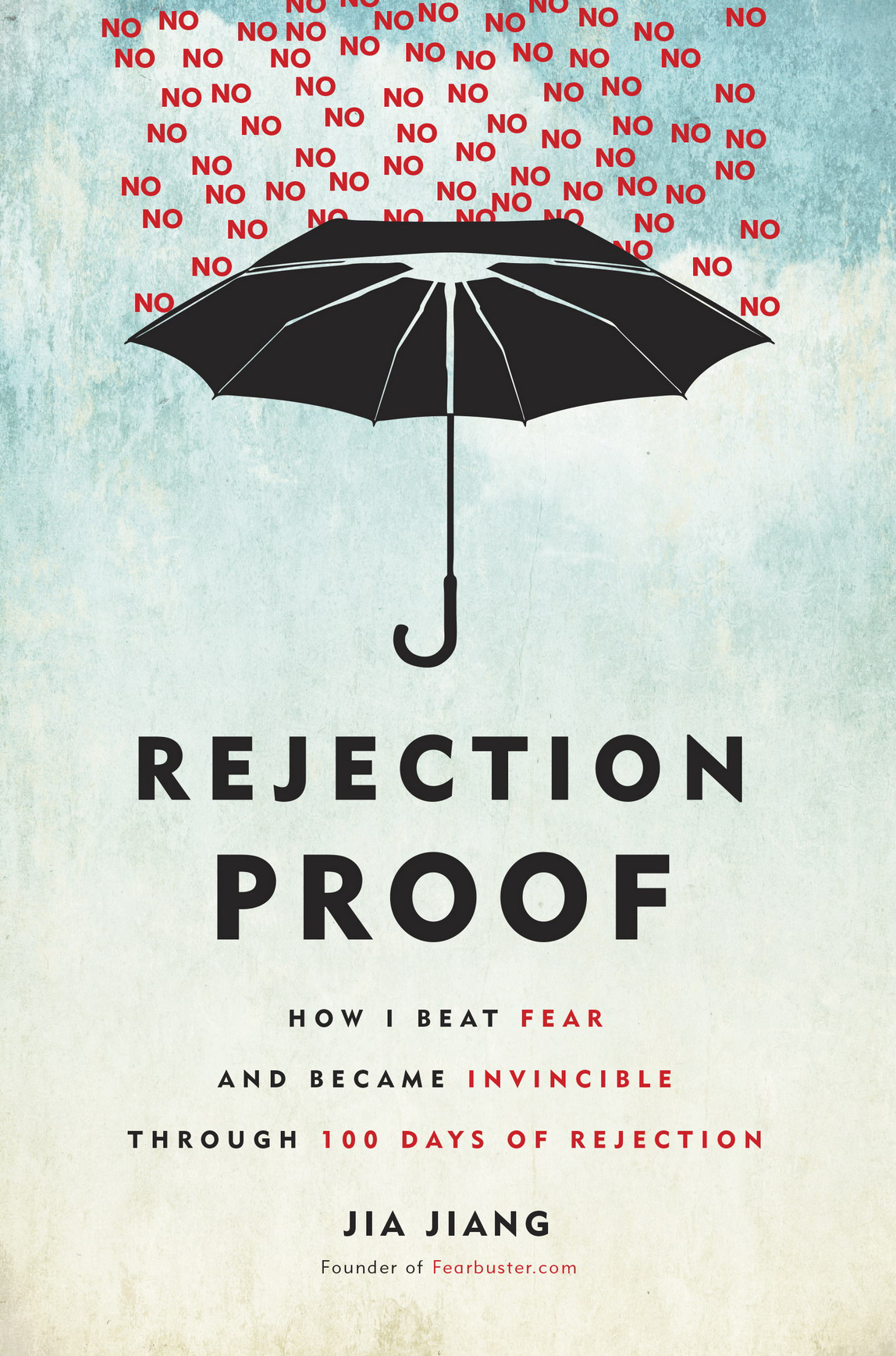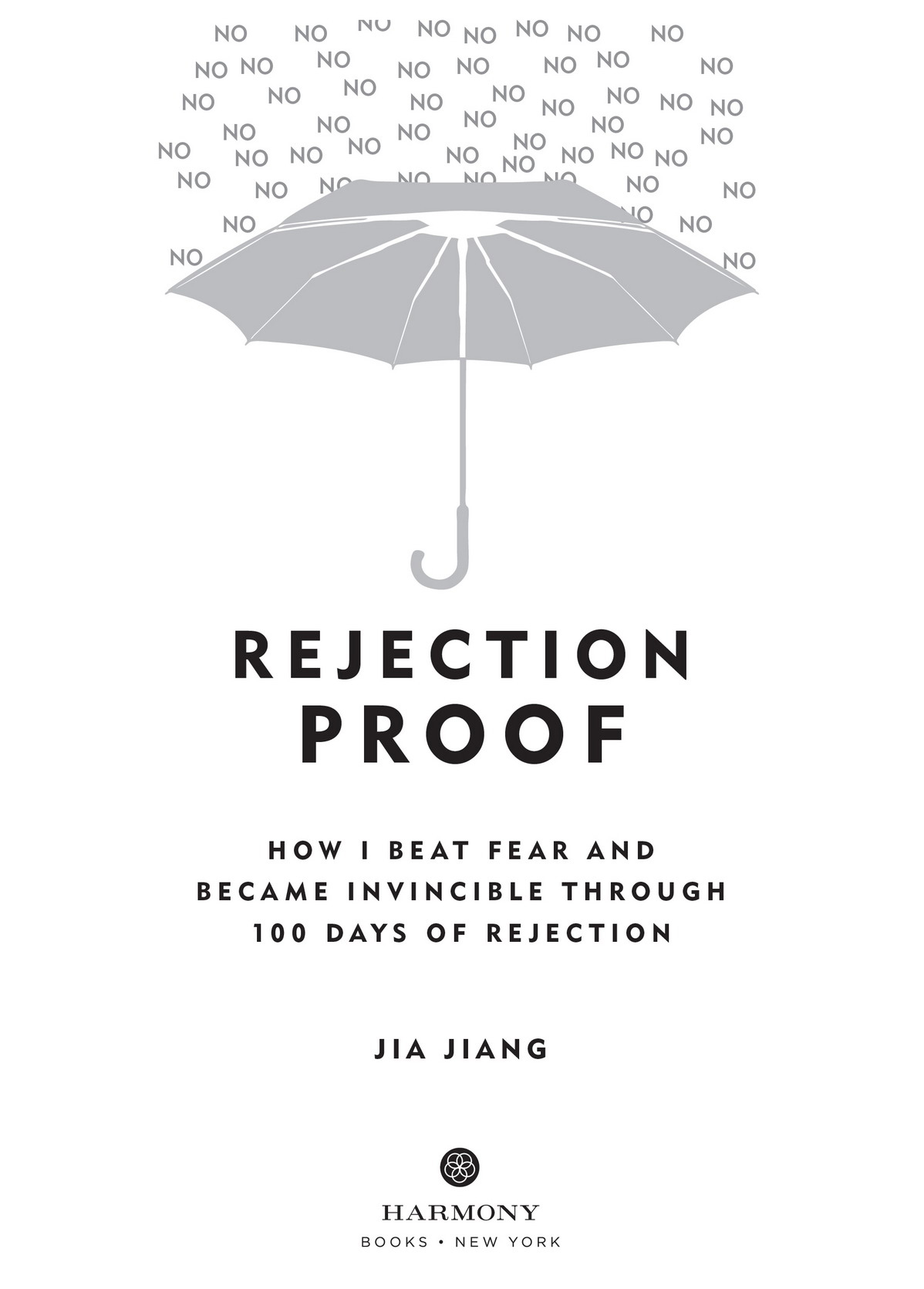All rights reserved.
Published in the United States by Harmony Books, an imprint of the Crown Publishing Group, a division of Penguin Random House LLC, New York.
Harmony Books is a registered trademark and the Circle colophon is a trademark of Penguin Random House LLC.
Library of Congress Cataloging-in-Publication data is available upon request.
Cover art: Vadim Georgiev/Shutterstock (watercolor); DeCe/Shutterstock (umbrella)
as a lifelong teacher, you taught me something thats more valuable than anything Ive learned in school: being a good person.
I miss you so much.
thank you for being my second father in my life.
Your support and mentorship mean the world to me.
PROLOGUE
November 18, 2012. It was an unusually hot afternoon in Austin, Texasbut thats not why I was sweating. I was driving my dusty RAV4 slowly through a random middleclass suburb in the northwest part of town, looking for a door to knock on. Id already passed hundreds of front doors, willing myself to pick one. But given what I was about to do, every house looked terrifying.
OK, stop being a coward, I muttered to myself, parking in front of a one-story, redbrick house with a nice garden. Poking out of the flower bed was a small, decorative cross. I hoped the cross signaled that a peaceful, churchgoing family lived there, not a KKK member. Either way, I hoped they wouldnt turn violent on a Sunday afternoon.
As I got out of the car, I wondered whether anyone waspeering through their drapes at the unexpected sight before them: a grown man wearing shin guards and cleats, holding a soccer ball in one hand and video-recording himself with an iPhone held in the other. Well, this one is a little bit risky, I said to my phone. I am going to ask someone to open up their backyard for me to play soccer in it. Well see what happens.
As I walked toward the door, I could feel my heart pounding. My cleats crunched through piles of dead leaves, and crows cawed from their perches in nearby trees. It felt ominous, like the beginning of a scary movie. That walkway seemed like the longest in the world.
Finally at the door, I knocked gently, fearing I would convey the wrong intention by pounding too hard. There was no response. I knocked again, with a bit more force. Still no response. It was only then that I noticed the doorbell. I pressed it. A moment later, the door swung open.
Standing in front of me was a large man in his forties, wearing a gray T-shirt with a giant Texas flag on it. Coming from the living room behind him I could hear the voices of TV football announcers and the faint buzz of a cheering stadium crowd. His name was Scott, I later learned. Like many Texans, he was a rabid Dallas Cowboys fan, and my knock came just as the game between the Cowboys and the Cleveland Browns was heading into overtime.
Hey there, I said in my best Texas drawl, gathering my courage. Do you think its possible for you to take a picture of me playing soccer in your backyard?
The mans eyes narrowed for a second. Then he glanced downward at my cleats. Playing soccer in my backyard, he repeated, slowly.
Itsuhfor a special project, I said.
After what seemed like a minute, but was probably just seconds, the Cowboys fan looked me right in the eyes and gave me my answer.
CHAPTER 1
MEETING REJECTION
Y oure probably wondering why I was standing at this mans front door and what I meant by special project. Was this a new sales strategy I was practicing? A dare? A social experiment? Actually, it was a little bit of each. It was part of a one-hundred-day journey to overcome my fear of rejectiona journey that gave me a new perspective on business and humanity, and gave me tools to be better at almost everything. By challenging myself to seek out rejection again and again, I came to see rejectionand even the world around mevery differently. It changed my lifeand I hope that by reading about my journey, it might change yours as well.
But before I tell you what happened next, maybe I should go back a bitback to the start.
It was July 4, 2012, just after sunset. Thousands of people were gathered at our local community park, waiting for the Independence Day fireworks to start. My wife, Tracy, sat next to me on our blanket, rubbing her belly. She was eight months pregnant with our first child. All around us, kids were running with Frisbees and ice cream cones, families were unpacking picnic baskets, beer bottles clinked, and laughter filled the air. Everyone seemed so happy, so filled with summertime joy.
Everyone but me.
In many ways, I was living the American dream. At just thirty years old, I had a secure six-figure job at a Fortune 500 company. Tracy and I owned a 3,700-square-foot house with a pond view. We even had a golden retriever named Jumbothe quintessential suburban American dogand now we were weeks away from the birth of our son. Best of all, my wife and I had an incredible relationship, and not a day went by that I didnt realize how lucky I was to be loved by such an amazing woman. In other words, I should have been overjoyed with my circumstances. But the truth was, I was as depressed as I could be. My misery wasnt personal, thoughit was professional.
I grew up in Beijing, China, at a time when every schoolage child was taught to be a model worker and a building block for the growth of the nation. But being a model workerin China or anywherehad never been my dream. Instead, ever since I was little, I had fantasized about being an entrepreneur. While other kids played sports or video games, I devoured the biographies of Thomas Edison and Panasonic founder Konosuke Matsushita, looking for clues about how to become a great innovator. When I was fourteen, Bill Gates visited Beijing, his first-ever trip to my hometown. And I became obsessed with his story of founding Microsoft. I tore down all the sports memorabilia I had on my bedroom walls and made my fantasy about entrepreneurship a life goal. I vowed to become the next Bill Gates and invent an amazing technology product that would take the world by storm. I pestered my family into buying me a brand-new top-of-the-line computer and started teaching myself how to write programming code. I even wrote a letter to them (which I still have) promising that my company would be so successful that I would buy Microsoft by the time I was twenty-five. Drawn in by flashy Hollywood depictions of America and the fact that Bill Gates lived there, I also believed I would one day move to the United States to fulfill that destiny.



